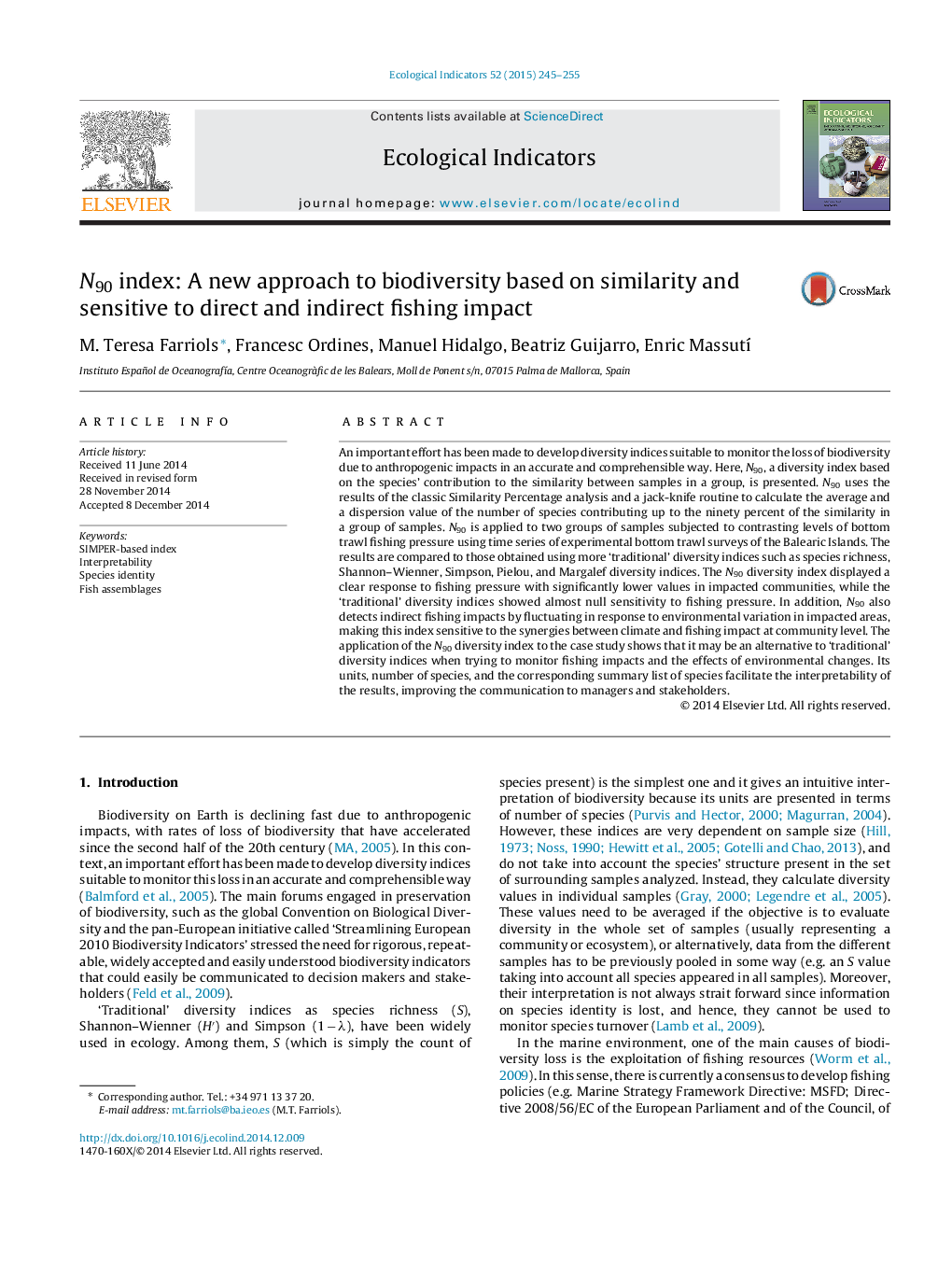| Article ID | Journal | Published Year | Pages | File Type |
|---|---|---|---|---|
| 6294538 | Ecological Indicators | 2015 | 11 Pages |
Abstract
An important effort has been made to develop diversity indices suitable to monitor the loss of biodiversity due to anthropogenic impacts in an accurate and comprehensible way. Here, N90, a diversity index based on the species' contribution to the similarity between samples in a group, is presented. N90 uses the results of the classic Similarity Percentage analysis and a jack-knife routine to calculate the average and a dispersion value of the number of species contributing up to the ninety percent of the similarity in a group of samples. N90 is applied to two groups of samples subjected to contrasting levels of bottom trawl fishing pressure using time series of experimental bottom trawl surveys of the Balearic Islands. The results are compared to those obtained using more 'traditional' diversity indices such as species richness, Shannon-Wienner, Simpson, Pielou, and Margalef diversity indices. The N90 diversity index displayed a clear response to fishing pressure with significantly lower values in impacted communities, while the 'traditional' diversity indices showed almost null sensitivity to fishing pressure. In addition, N90 also detects indirect fishing impacts by fluctuating in response to environmental variation in impacted areas, making this index sensitive to the synergies between climate and fishing impact at community level. The application of the N90 diversity index to the case study shows that it may be an alternative to 'traditional' diversity indices when trying to monitor fishing impacts and the effects of environmental changes. Its units, number of species, and the corresponding summary list of species facilitate the interpretability of the results, improving the communication to managers and stakeholders.
Related Topics
Life Sciences
Agricultural and Biological Sciences
Ecology, Evolution, Behavior and Systematics
Authors
M. Teresa Farriols, Francesc Ordines, Manuel Hidalgo, Beatriz Guijarro, Enric MassutÃ,
